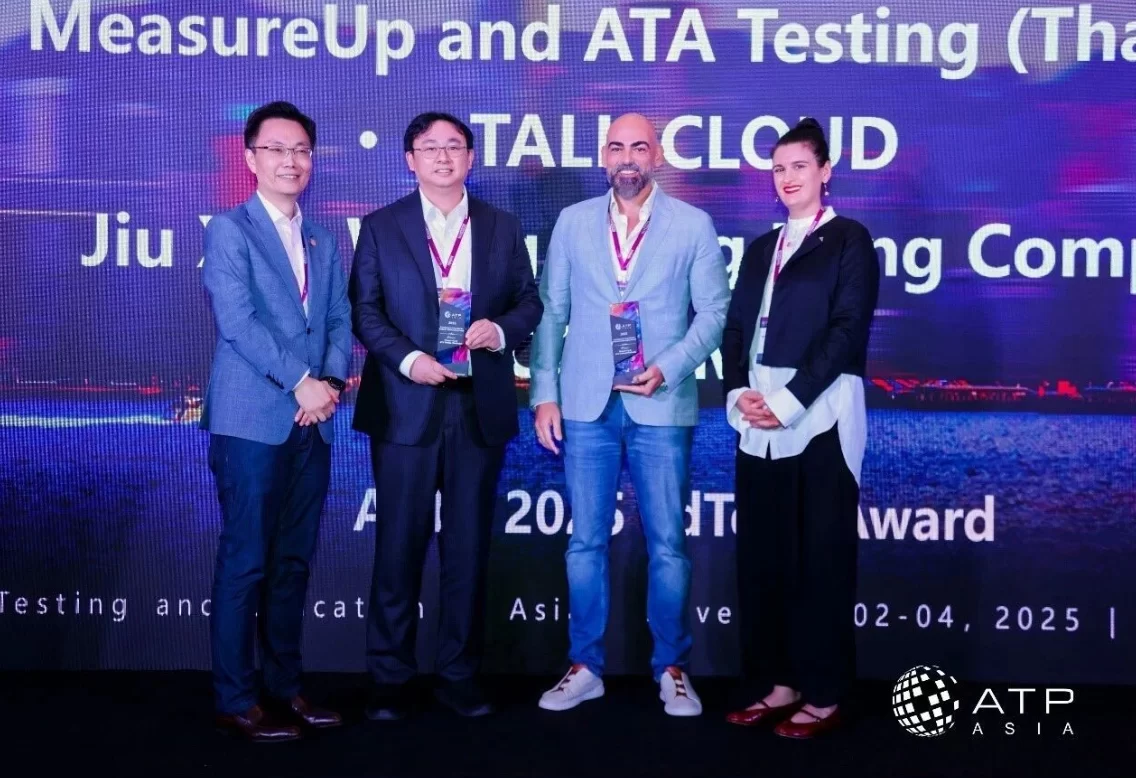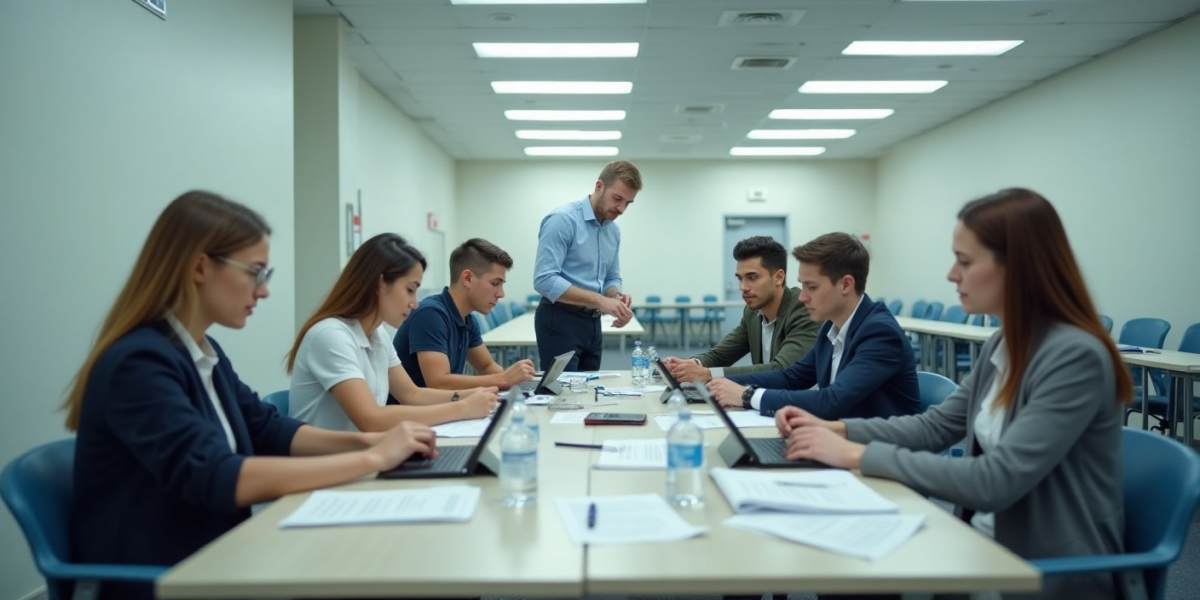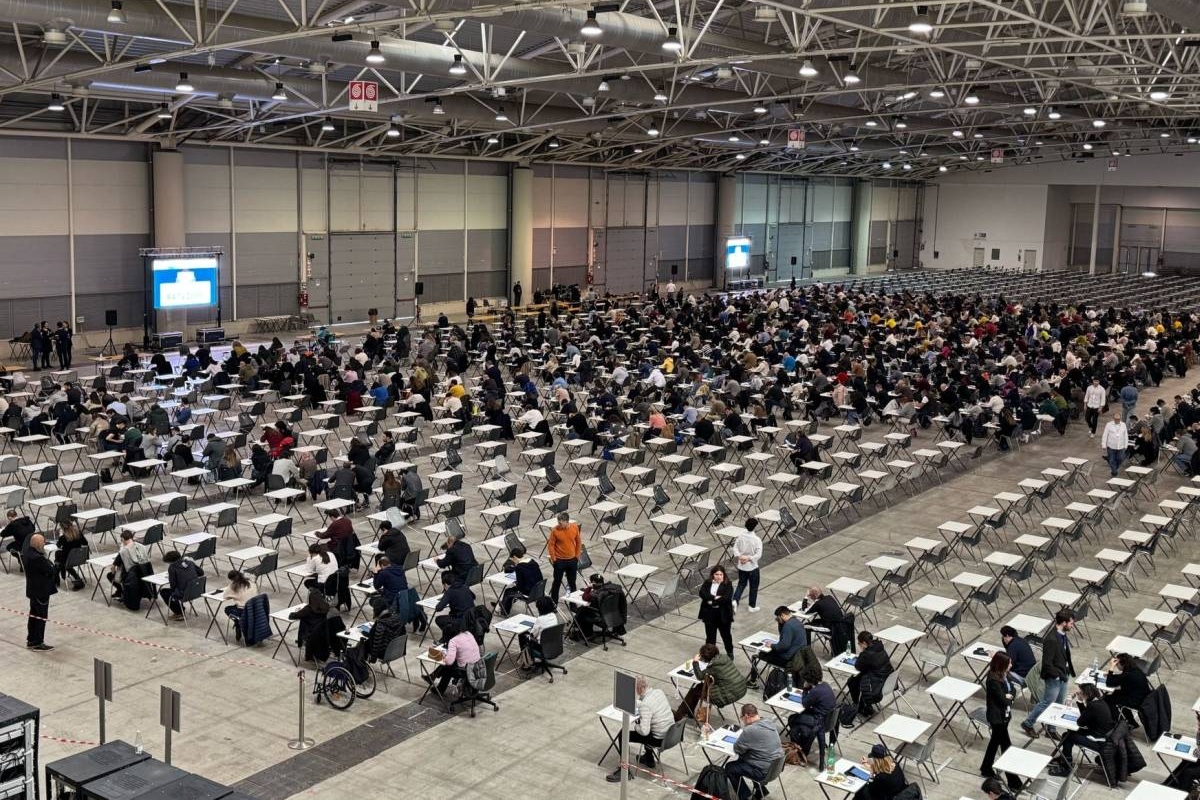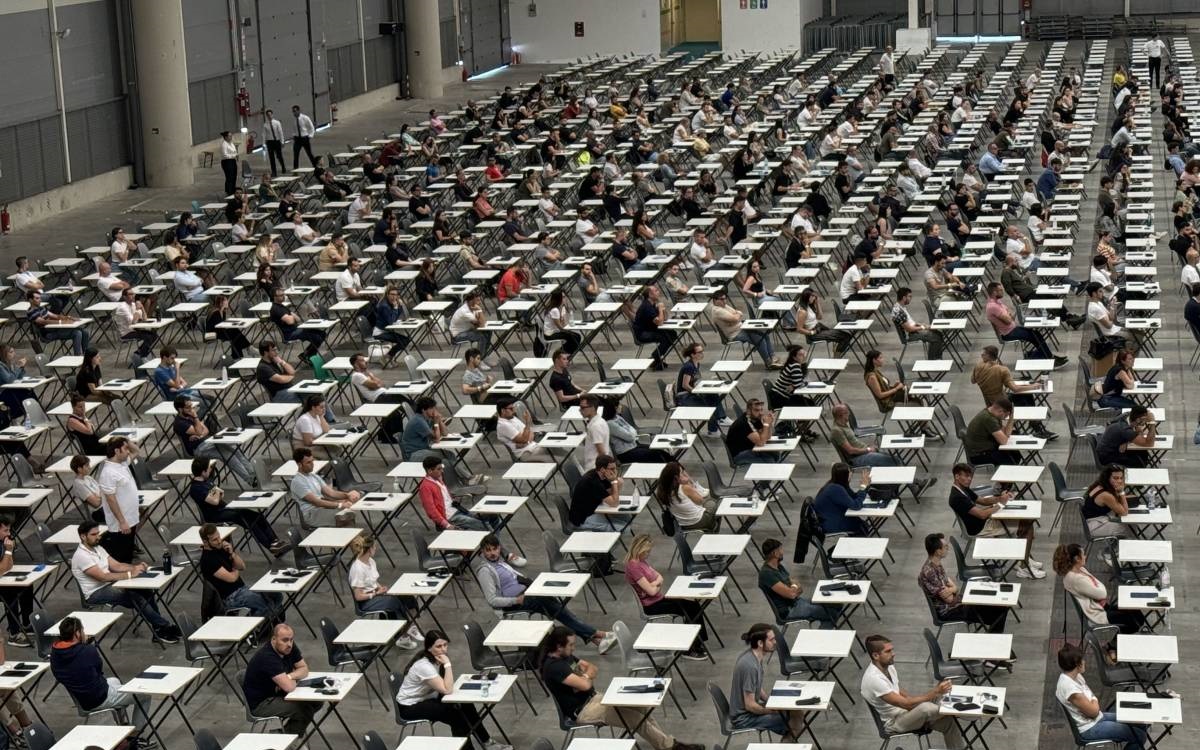In an era of public sector renewal and the search for new talent, the selection process has evolved into an art form that goes far beyond the mere CV. So, what does it really mean to identify the right people to drive change? We asked those who, every day, help shape the future of our institutions: the occupational psychologists at Recrytera. In this interview, you will discover how their vision and expertise are transforming public competitions by placing both skills and individuals at the heart of the process.
- What does it mean today to be an occupational psychologist in the dynamic context of public selection?
Being an occupational psychologist in public selection today means operating in a context characterized by profound changes and complex challenges. In fact, the Public Administration is experiencing, since the post-Covid period, a transformation process that requires new skills and approaches in the selection and assessment of candidates. Moreover, the need to manage the turnover due to the massive retirement of public personnel, the entry of new generations within the Public Administration and the need to make it attractive to them require selection tools capable of intercepting different skills and changing professional expectations. In this context, it has become necessary to move from selective forms aimed at assessing knowledge to models aimed at assessing skills. Within this scenario, the occupational psychologist is called upon to strategically fit in and operate in a standardized context, supporting administrations in the definition of competence profiles aligned to organizational needs, designing scientifically based methodologies that guarantee validity and reliability, managing high volumes of applications but always operating within the regulatory framework and maintaining high quality standards.
- What is the concrete contribution that an occupational psychologist can make within a company like Recrytera?
An occupational psychologist can make a concrete and distinctive contribution within a company like Recrytera, bringing added value linked to an in-depth understanding of human behavior and relational dynamics in organizational contexts. This means being able to read what happens “beyond” numbers or procedures, introducing new perspectives within often standardized processes. Through specific competences in the assessment of soft skills, in the management of group dynamics and in the promotion of organizational well-being, the occupational psychologist can contribute to improving the effectiveness of selection processes, onboarding, competence development and management of the corporate climate. Moreover, he or she can help intercept signs of potential criticality, facilitating greater coherence and integration between people, roles and organizational culture. In this way, his intervention becomes a bridge between operational efficiency and attention to the human factor.
- How does the psychological approach change when working on selections for public competitions compared to the private sector?
In the public sector, the tools used in the assessment of transversal competences, within the framework of selection procedures, need to be designed in a structured manner and must respect criteria of transparency, impartiality and objectivity, keeping as references regulatory guidelines and administrative regulations, which delimit their flexibility in use. All this must be experienced in terms of opportunities, taking up the challenge offered by the Public Administration, to ensure objective selections, responding to the needs expressed by the administrations, which are able to identify the best candidates capable of effectively filling the required role and bringing added value to the organizational structure.
- How do you support candidate assessment processes in public competitions managed by Recrytera?
Starting with the needs analysis process, we provide consultancy in the design of recruitment strategies, from the construction of specific notices of competition to the identification of tests aimed at assessing the soft skills described in the model of transversal competences needed to successfully fill a specific role or set of roles in an organization. The consultancy activity also includes support in the description of the professional profile (job description) and the soft skills required for the specific profile. To this end, we complement Selection Boards as expert members in the soft skills assessment phase of the selection process.
- How important is the human component in automated or digitized selection processes?
Technology must be seen as a tool that enhances and does not replace the role of psychologist. As a psychologist experienced in personnel selection for public administrations, I believe that the human component remains fundamental even in digitized selection processes, for several reasons. First, the role of the human factor is irreplaceable. Indeed, digital tools can process data and identify patterns, but the contextual interpretation and evaluation of behavioral dynamics still requires expert human judgement, as each candidate is unique and may require a differentiated approach that only the expert eye can grasp and critically evaluate. Furthermore, automated systems can produce results that need interpretation and validation by trained professionals. Automation can be very effective for the first selection phases (requirements verification, administration of standardized testing tools) and can provide support for the evaluation phase, but the final synthesis must always involve expert input. Therefore, the most effective approach should integrate the efficiency of digitization with human expertise, ensuring faster processes but maintaining the evaluation quality needed to identify the best talent.
- How do you experience teamwork in a company like Recrytera, where very different figures collaborate?
Collaboration with different figures is a very valuable element. Indeed, each team member contributes not only with his or her specific expertise but also brings a particular perspective on the functioning and objectives of the organization.
This multiplicity of outlooks makes it possible to develop a more complete and articulated vision of the projects, where each contribution enriches the overall understanding of the company’s objectives and strategies. The daily confrontation with different methodological approaches stimulates a continuous learning process that goes beyond purely technical skills.
The richness of this collaboration lies precisely in the ability to integrate different professional languages and logics, creating a working environment where individual growth is nourished by the diversity of the group. Each interaction becomes an opportunity to broaden one’s professional perspective and to contribute in a more conscious and strategic way to collective success.
What emerges from this dynamic is a corporate culture based on the positive contamination of ideas, where curiosity about the other’s approach becomes a catalyst for innovation. Professional diversity is thus transformed into a tangible competitive advantage, allowing challenges to be met with greater creativity and flexibility, and offering more comprehensive and innovative solutions.
- What are the most interesting challenges of the role and how do you prepare for them?
The most interesting challenge of our role is to win the trust of administrations and commissions, demonstrating the concrete value that the occupational psychologist can bring to public selection processes. Indeed, we are frequently confronted with an initially skeptical approach, which we find understandable considering that the assessment of soft skills within public competitions is still a relatively new element.
What makes this challenge particularly stimulating is the need to translate theoretical competences into measurable results and demonstrate through action how our contribution can improve the quality and effectiveness of selection processes. It is not a matter of imposing a vision, but of integrating harmoniously into established procedural mechanisms and already structured operational routines, bringing added value that becomes immediately recognizable. To address this situation, we focus on consistency between what we propose and what we implement. Constant preparation, both from a technical and regulatory point of view, allows us to consolidate professional credibility and to make evident the operational benefits that derive from integrating the assessment of soft skills, always proposing relevant and easily implemented solutions.
Success is measured when our presence is no longer perceived as an additional element, but as a natural and valuable component of the process.
- What advice would you give to a young psychologist who wants to pursue this career?
The first piece of advice is to develop a solid understanding of the regulatory and procedural context that characterizes the public sector. It is not enough to have excellent psychological skills: it is essential to acquire an overview of the institutional mechanisms, organizational logic and specificities that characterize this professional field. This transversal knowledge becomes the basis for effectively applying one’s specialized skills.
We also suggest cultivating a flexible and problem-solving mindset. Every situation presents unique characteristics and requires the ability to creatively adapt one’s skills to changing contexts and objectives. The ability to think outside the box and find innovative solutions is often more valuable than the rigid application of standardized protocols. Developing excellent communication and interpersonal skills is crucial, as professional success largely depends on the quality of interactions with interlocutors with different backgrounds and expectations. Knowing how to build trusting relationships, mediate between different needs and translate complex concepts into accessible language is a key distinguishing skill.
Finally, we recommend cultivating a genuine passion for continuous learning and professional development. The constant evolution of the sector requires professionals capable of anticipating change, adapting quickly to new developments and actively contributing to innovation in processes and methodologies.
- How is your figure integrated into Recrytera’s processes to ensure fairer, more transparent and person-oriented selections?
The integration of the figure of the occupational psychologist in Recrytera’s processes is articulated differently according to the types of tests, always guaranteeing fairness and transparency through specific methodological approaches.
For written tests, our contribution focuses mainly on the design phase of the assessment instruments. In addition, we also deal with the definition of objective and standardized criteria that enable uniform assessment and minimize interpretative variability. Furthermore, we contribute to the statistical analysis of the results to identify any anomalies or criticalities in the evaluation process. In oral tests, on the other hand, our presence takes on a more direct and operational character. Here we can deploy specific skills in observing behavioral dynamics and conduct structured interviews, ensuring that each candidate is assessed according to consistent and transparent parameters. Our role becomes crucial in detecting not only the declared competences, but also in assessing how these are concretely manifested through behavior and interaction with the candidate.
To give an example: communicative competences emerge not only from the content of answers, but also from the ability to modulate the linguistic register and to use language appropriate to the context. This level of observation allows one to grasp nuances that go beyond theoretical preparation, revealing the real ability to transfer knowledge into operational contexts.
This multidimensional observation makes it possible to construct a more complete and realistic profile of the candidate, integrating technical knowledge and transversal skills in a holistic assessment of his or her suitability for the role. In both contexts, our figure represents an element of methodological guarantee that ensures respect for the principles of meritocracy and transparency, adapting the assessment tools to the specificities of each type of test and always keeping the objective of a fair and person-oriented selection at the center.
- How does the professionalism of the occupational psychologist contribute to enhancing the human approach that Recrytera applies in public selection processes?
Our psychological training is a key element in keeping the person at the center of selection processes, even when operating within strict regulatory frameworks. Our contribution consists in ensuring that each assessment, while respecting the required criteria of objectivity and transparency, considers the complexity and uniqueness of each candidate.
This translates into the ability to go beyond a purely technical assessment, integrating a deeper reading of people’s transversal competencies, motivations and growth potential. Our approach helps to identify not only what a candidate can do, but also how he or she approaches professional challenges and what contribution he or she can really make in the specific context. Our professionalism also contributes to creating a more welcoming and constructive assessment environment, where candidates can feel valued as individuals and not just as bearers of skills. This climate of respect and attention facilitates the emergence of real individual potential, allowing for a more accurate and meaningful selection.
In essence, our role is to humanize processes that might otherwise be impersonal, transforming every moment of assessment into an opportunity to recognize human values, where technical excellence is combined with the authenticity of the person.
The interview with Recrytera’s occupational psychologists gave us a clear and inspiring perspective: the future of public selection is already here, and it is based on an intelligent integration of technology and the human factor. Recrytera’s commitment to a people-oriented approach, guided by solid scientific foundations, shows how excellent results can be achieved while ensuring fair and transparent processes. A virtuous example of how innovation and care for people can go hand in hand, building a public service that is increasingly equal to the challenges of tomorrow.





